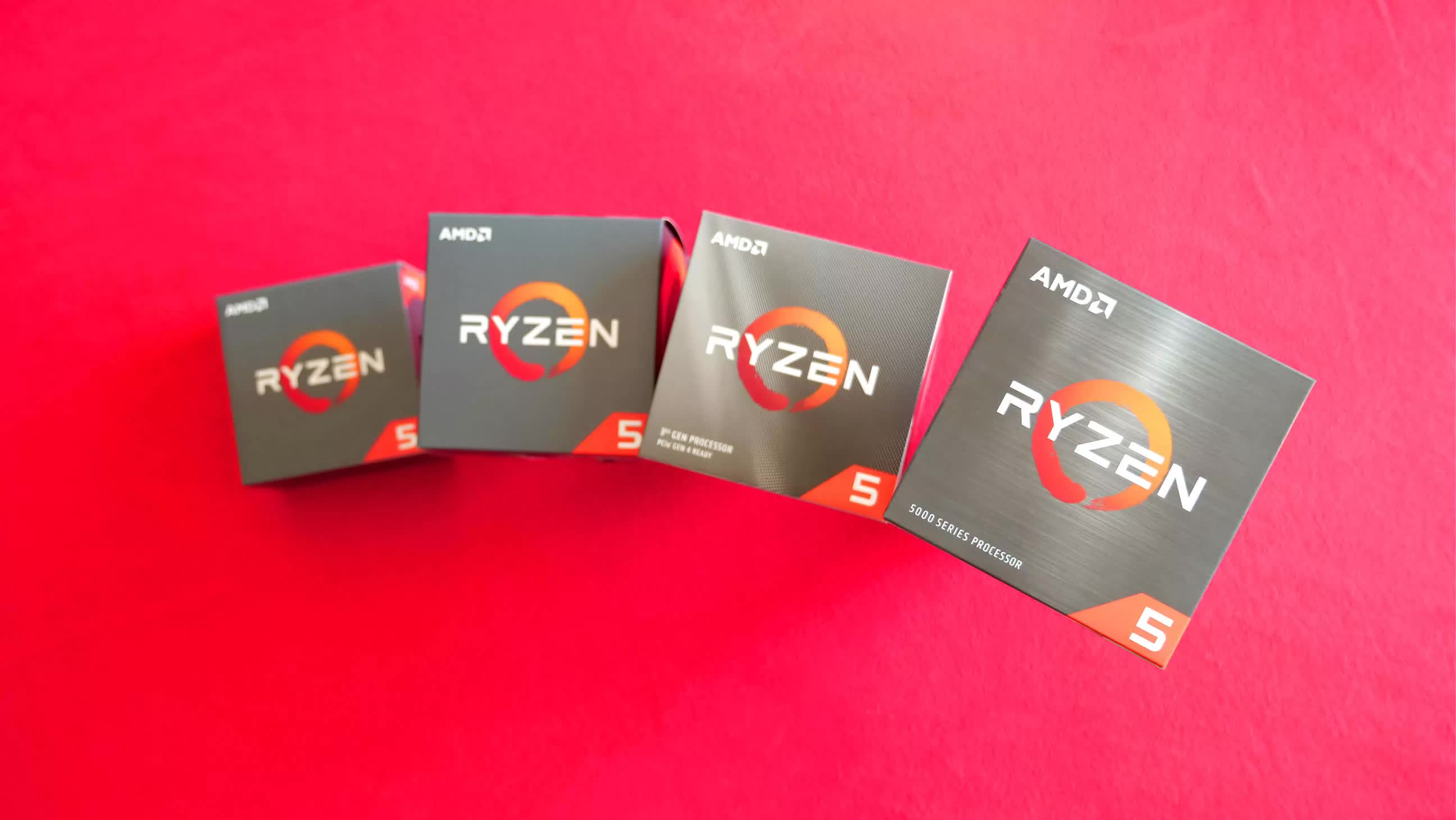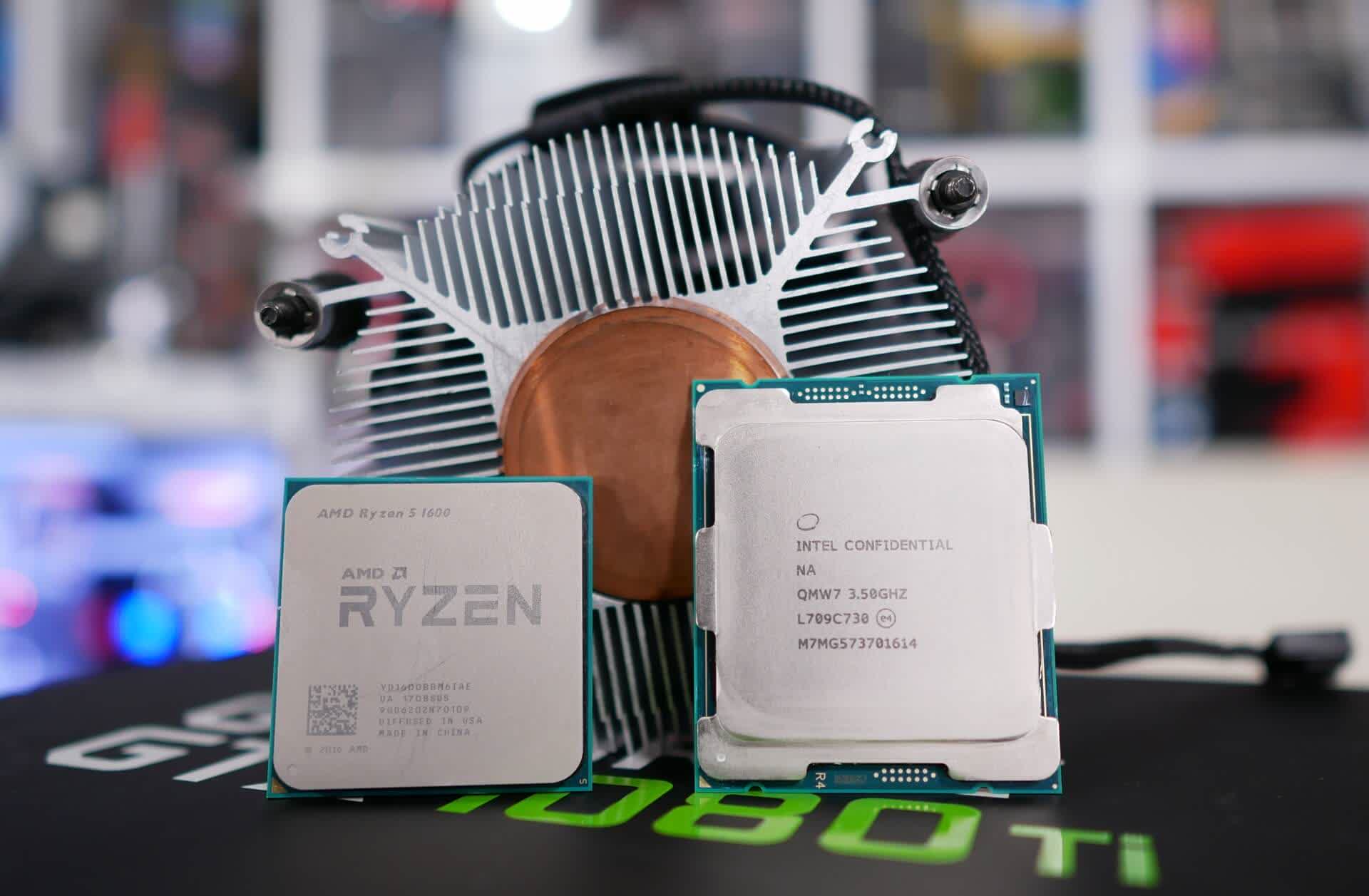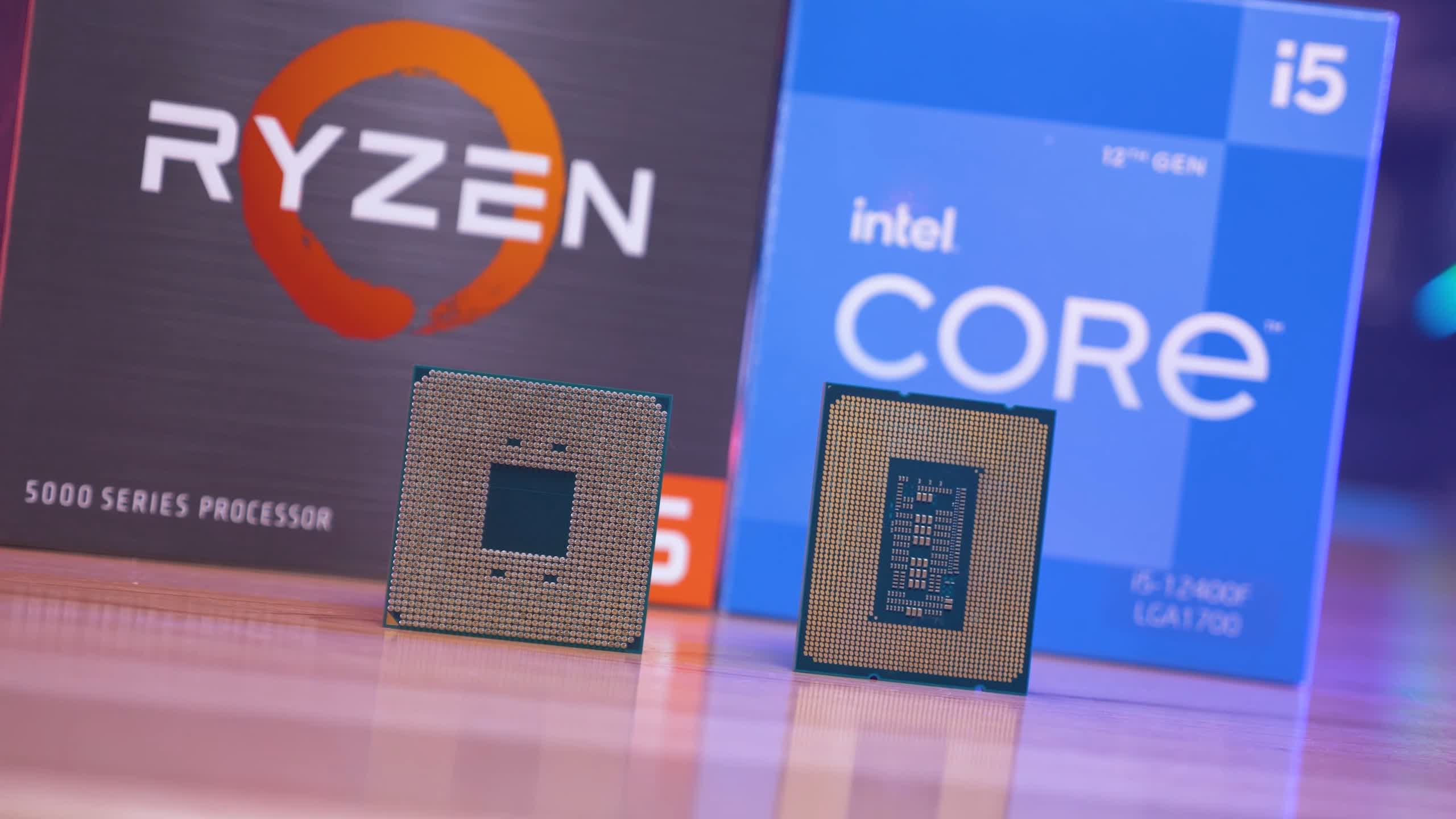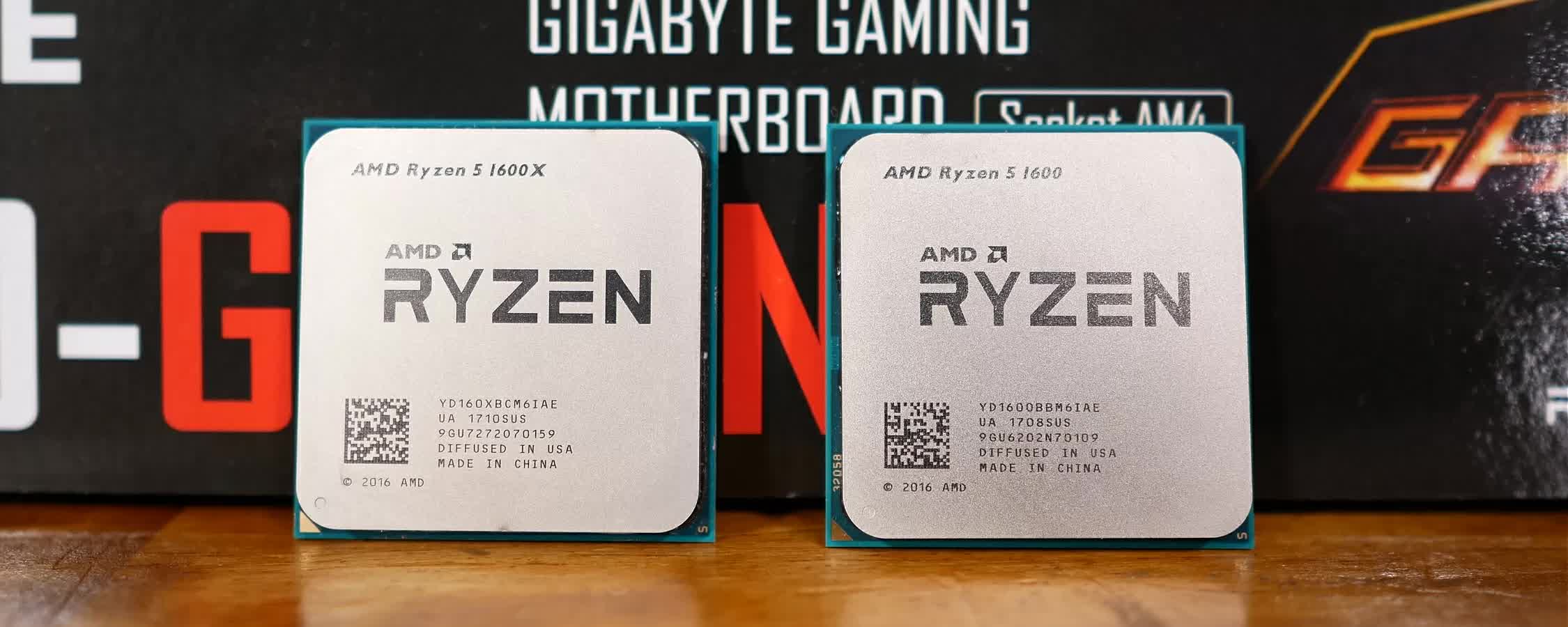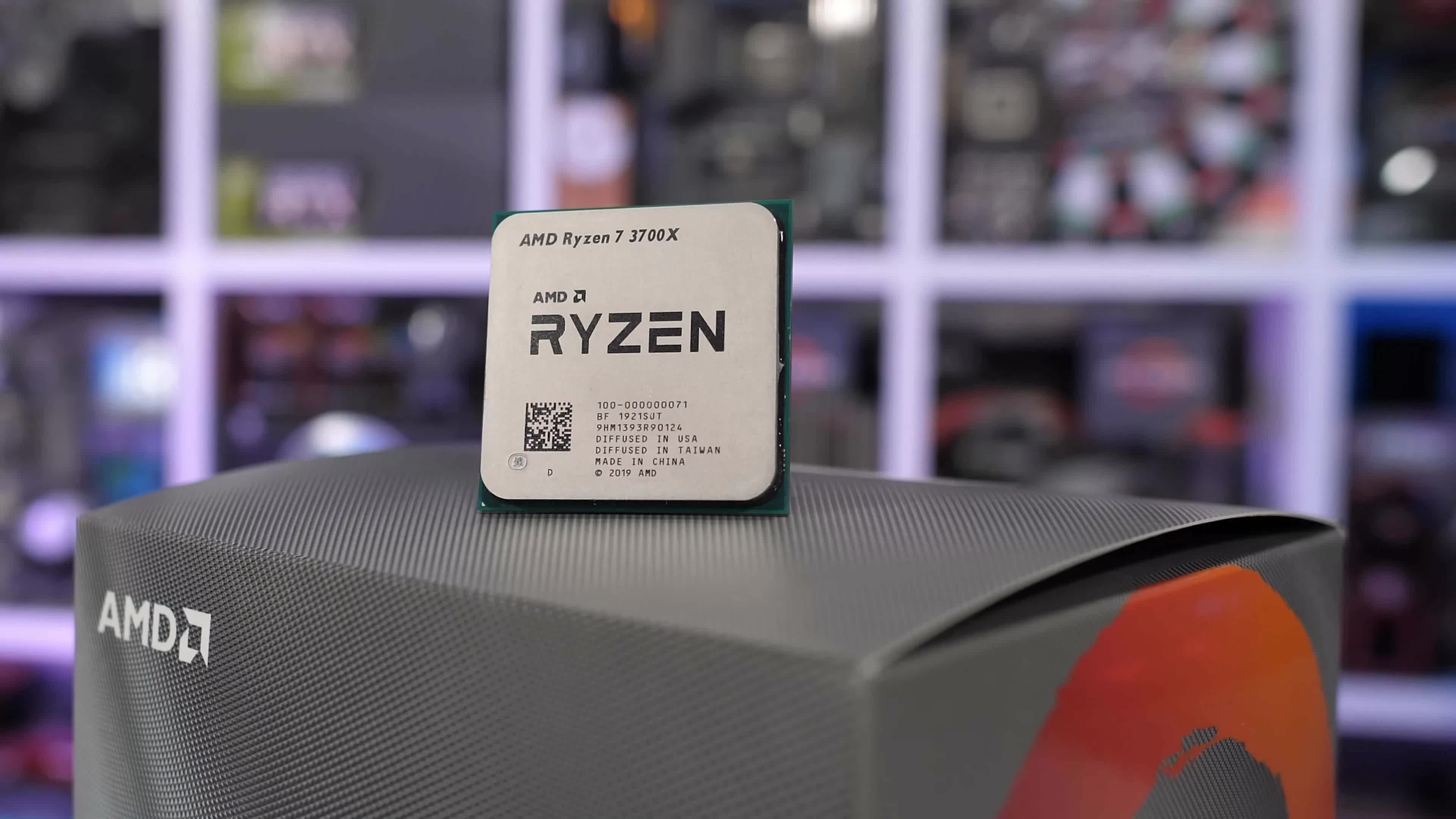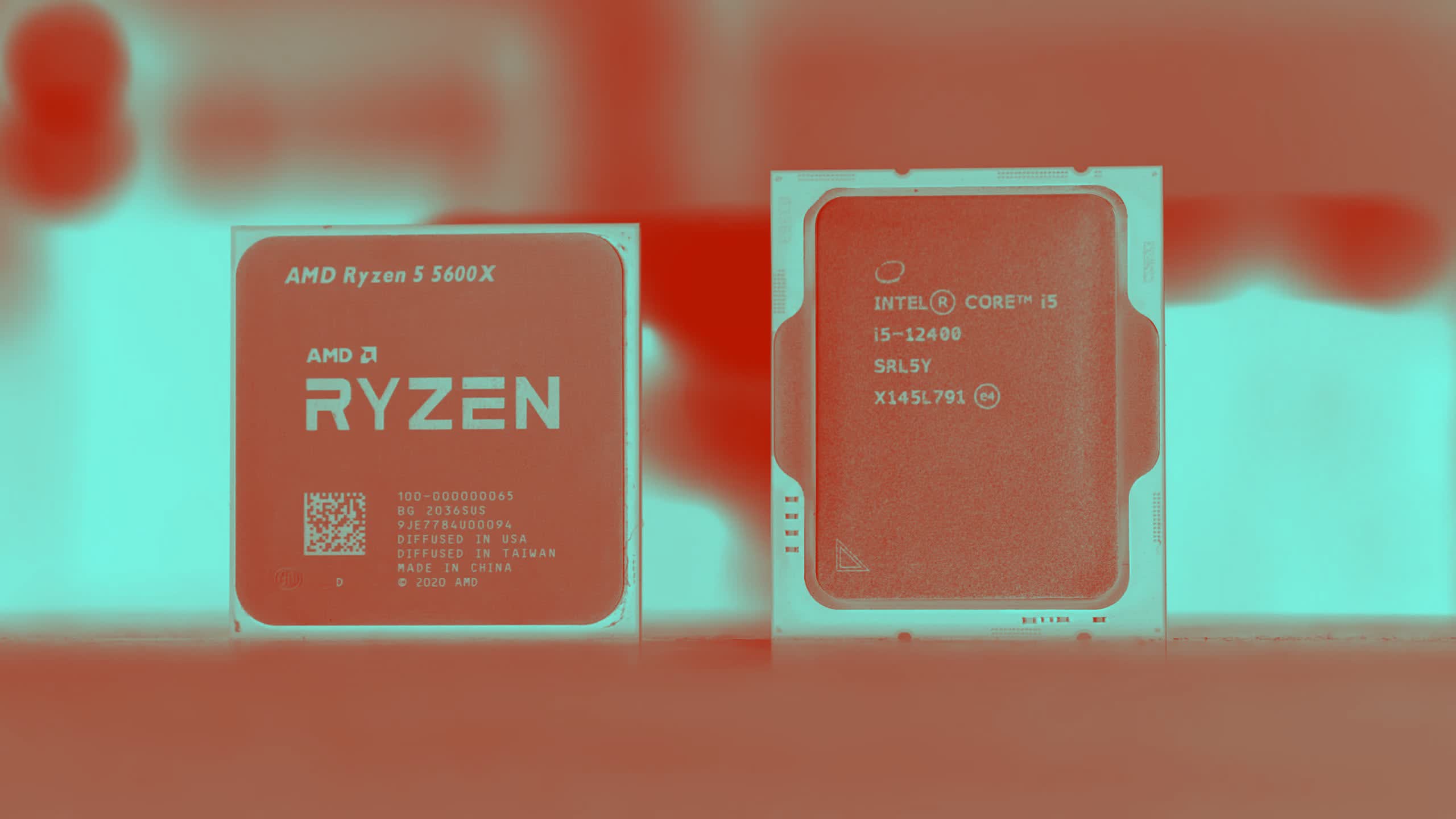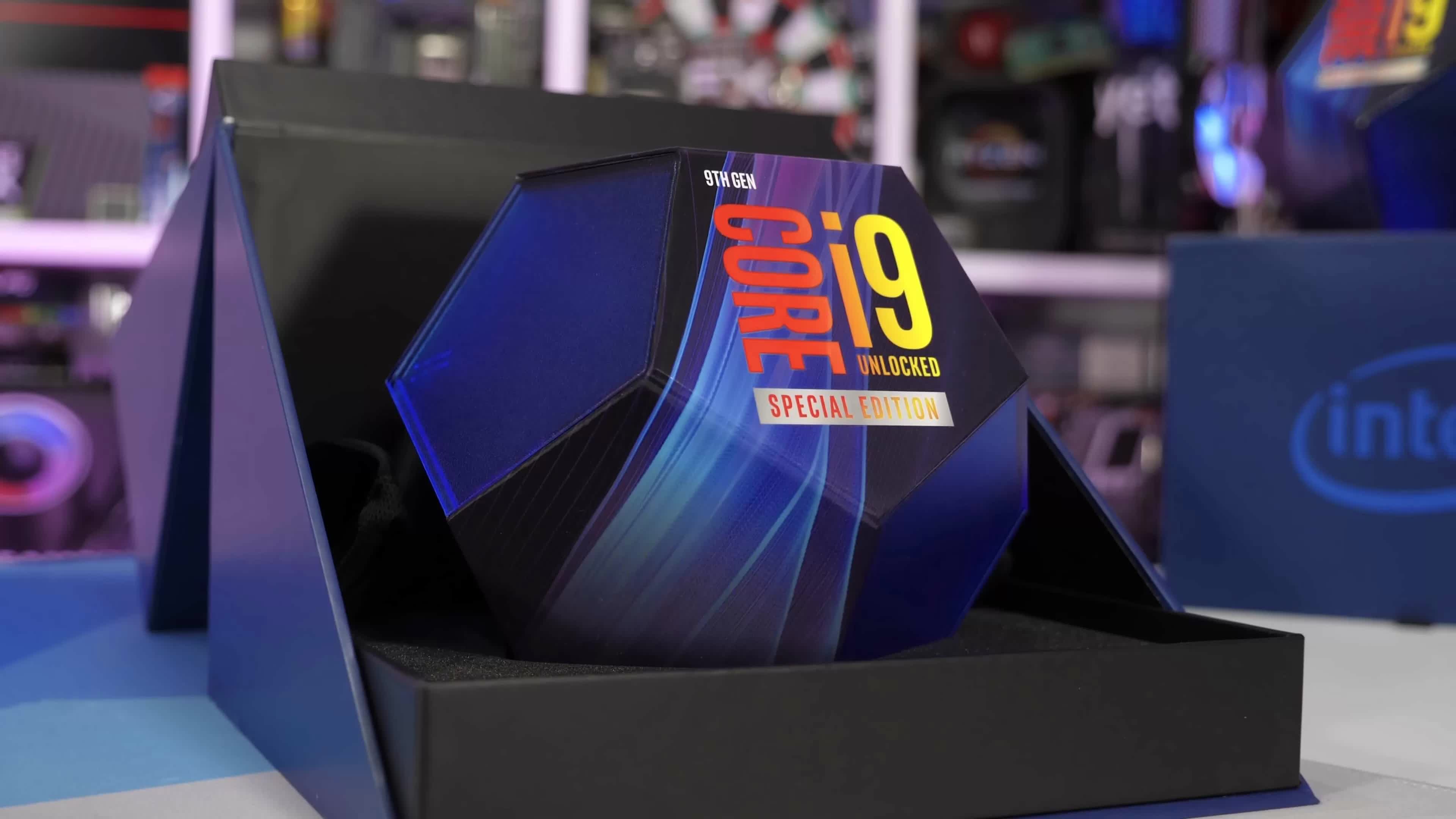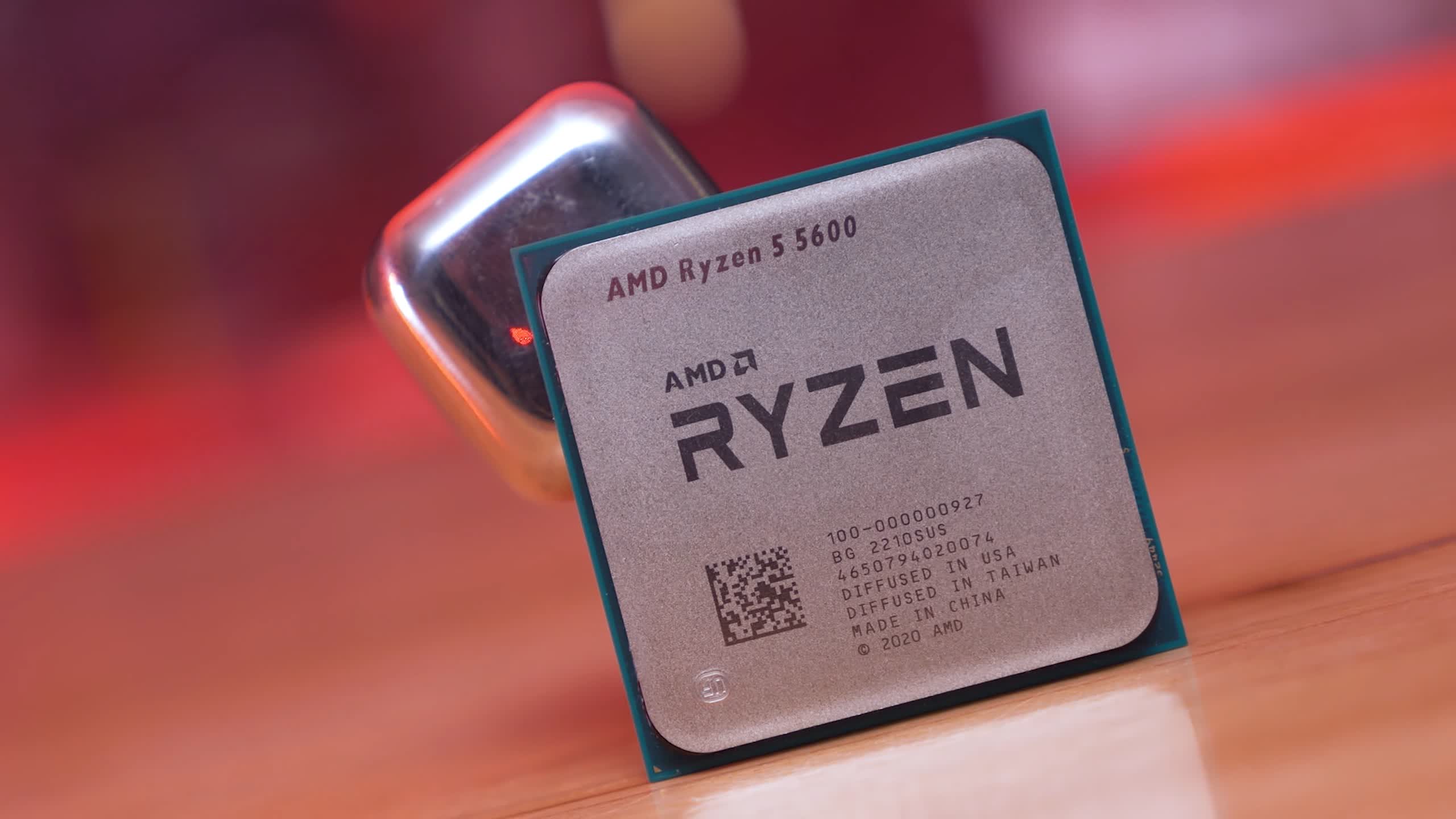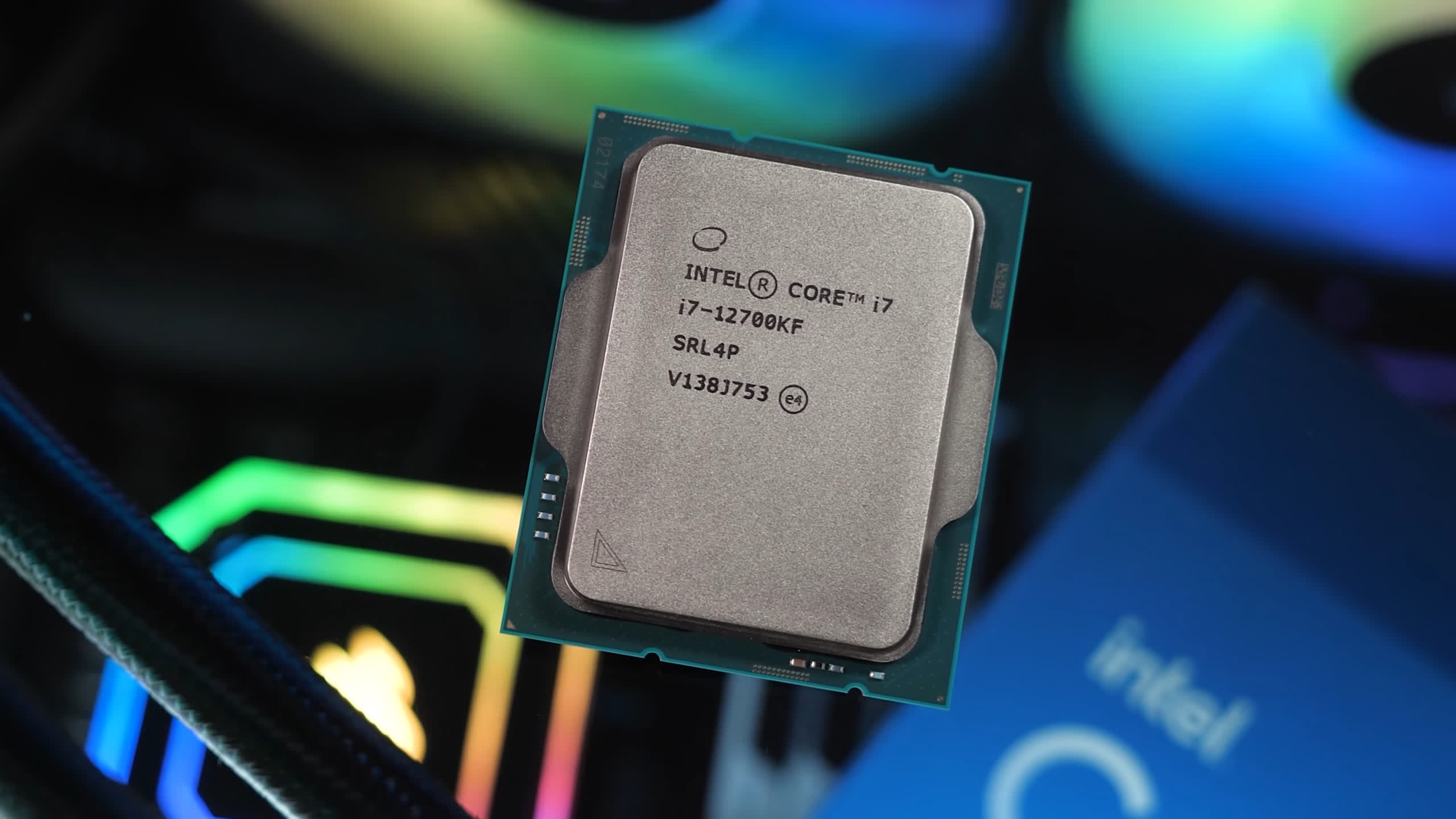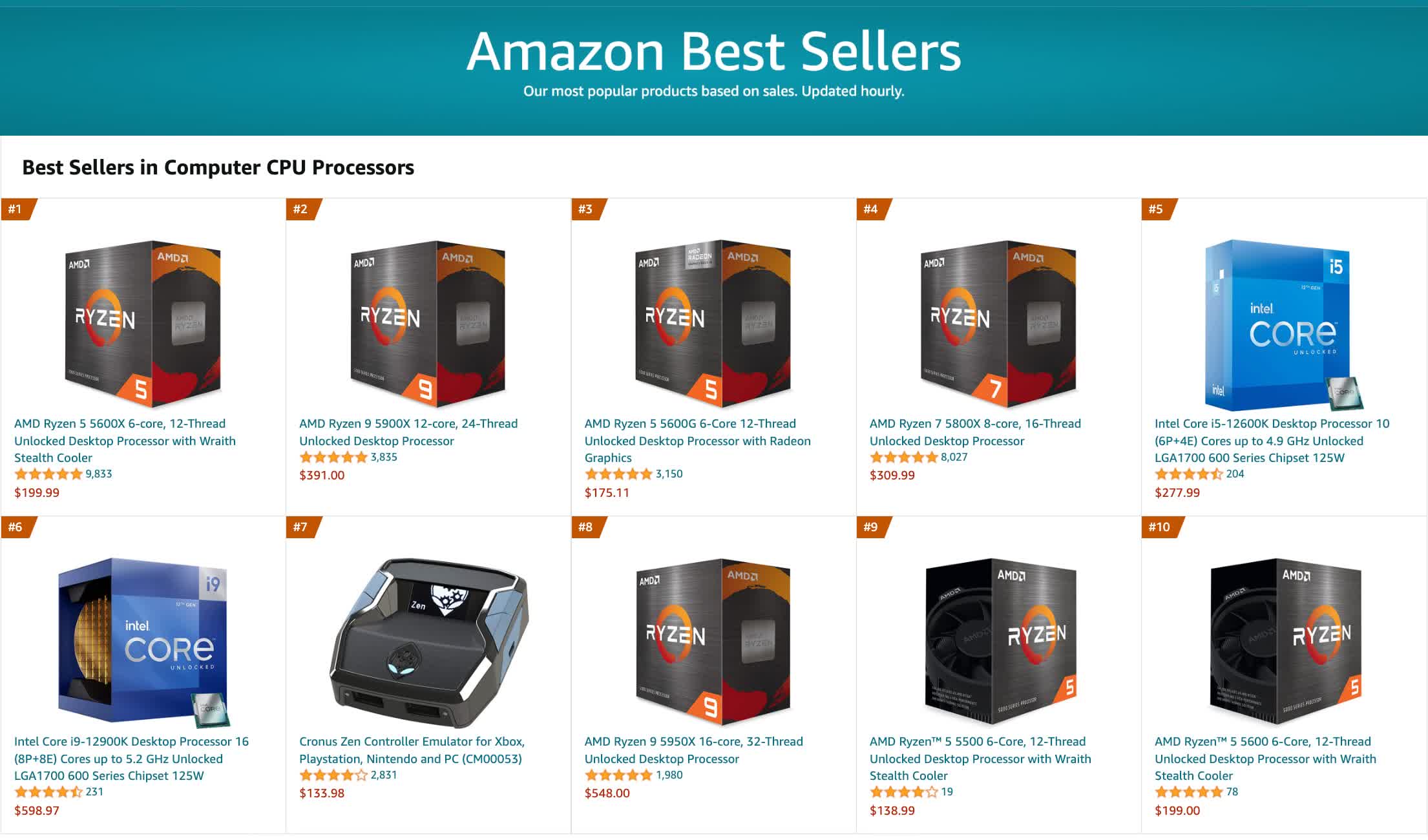We're currently in the process of testing the Ryzen 7 5800X3D on various first generation AM4 motherboards (coming soon), which prompted me to go back and look at a few of our previous AMD vs. Intel battles over the years, including user comments. I noticed a common theme amongst... "anti-Ryzen" readers.
For me, a big incentive to go with Ryzen was the AM4 platform, though it'd seem quite a few didn't agree with that 3 or 4 years ago. AMD did promise platform support until at least 2020 and bar a small hiccup that was quickly reversed, it's been mostly smooth sailing for those who bet on Ryzen early and had a clear upgrade path in subsequent generations.
The plan as we understood it back in 2017 when Ryzen first burst onto the scene was that those investing in a 300-series AM4 motherboard would be able to upgrade to a 2nd or 3rd generation Ryzen CPU, or any other chip released up until 2020. This remains a big deal and in our opinion platform longevity was part of Ryzen's competitive advantage and success story.
Before that, the norm was Intel's tick-tock strategy, which saw each socket be supported only two CPU generations, with the following 'tock' generation generally bringing minor improvements. So for example, if you bought a Sandy Bridge Core i3 processor in January 2011 on an LGA1155 motherboard and then 2 years later wanted to upgrade to say the Core i5-4670K, you'd need a new motherboard supporting the LGA1150 socket, even though both platforms used DDR3 memory.
To this day, Intel has stuck with this strategy, 4th and 5th-gen shared the LGA1150 socket, then 6th and 7th used LGA1151, and although 8th and 9th-gen also used the LGA1151 socket, they were fully incompatible. Then 10th and 11th-gen moved to LGA1200, and now 12th-gen uses LGA1700 which will likely be good to support 13th gen later this year and that will be over until something else replaces it.
This means that if we want to compare Intel CPUs released over the past 5 years, we need four individual test systems using different motherboards, though all run the same DDR4 memory. Meanwhile, from AMD we've been able to use a single test system though admittedly BIOS support is a little tricky especially for first generation boards, but it does work, and it works well.
Although it's an oversimplification to put it like this, the broad platform support has had us recommending Ryzen many times in the past. We have faced a lot of criticism for recommending AMD, especially in the earlier days, though of course that goes both ways as recent recommendations for Intel Alder Lake CPUs have caught their own blow back, but, we're not here to discuss that today.
On the AMD side, more than once we heard comments along the lines of "no one upgrades every generation, or even every second generation, so AM4's longer platform support is useless, it benefits no one, Intel is better so buy Intel." Many variations of that comment have been left on our CPU reviews over the years – certainly less in the last year – but 3+ years ago this was a recurrent theme.
In my opinion, this has always been wrong and I'll explore why in a moment, but with the release of the AGESA 1207 microcode which allows even 300 series boards to support the latest and greatest Zen 3-based processors, the evidence for why that take is wrong is more obvious than ever.
If we go back to 2017 when first-gen Ryzen launched, budget enthusiast gamers had the choice of the Core i7-7600K for roughly $240 or the Ryzen 5 1600 for $220. The Ryzen chip was slower in almost all games, but ~80% faster for all-core workloads, thanks to a 50% increase in cores along with SMT support for 3x as many threads.
It seemed obvious to me that within a relatively short period of time, the R5 1600 would be the better gaming CPU and within 2 years it was. Today pick any relatively modern game and the Ryzen 5 1600 lays waste to the 7600K. The Core i7-7700K has aged better relative to the Ryzen 7 1700, though whereas the Ryzen 7 part was heavily outperformed for gaming back in 2017, today they're very close and for CPU heavy games the R7 1700 is generally faster.
Now, if you purchased either the 7600K or 7700K (or any 7th-gen CPU) back in 2017, that was as far as that platform was going to take you. In order to secure more CPU performance with the 8700K, for example, you would need a new motherboard, and that can be costly for mid-range to high-end builds.
Meanwhile, going from the Ryzen 5 1600 to the Ryzen 7 3700X, for example, wouldn't require a motherboard change which is impressive given that's quite a substantial performance upgrade. And now, B350 and X370 motherboards also support Ryzen 5000 series processors, so a relatively inexpensive but powerful CPU such as the Ryzen 5 5600 has become a drop-in upgrade for your 5-year-old R5 1600 system for just $175.
Case in point, in a feature we prepared to check out 6-core Ryzen GPU scaling, we found that when CPU-limited, Zen 3 was on average 64% faster than Zen – comparing the 1600X and 5600X – with certain games where performance was more than doubled.
Essentially, if you bought a Core i5-7600K in 2017 it would have been a struggle not to upgrade by the release of the 10th-gen series, landing something like the Core i5-10400F for around $160 along with a new motherboard for another $100 or so. The Ryzen 5 5600 is a good bit faster than the 10400F though, so to achieve a similar level of performance you'd need a 12400F, which is a bit faster for gaming, but it's yet another motherboard change to get there.
Therefore it's fair to say at this point, if you bought into Ryzen back in 2017 you made the right choice and I have to admit early on I was a bit skeptical of Ryzen as it didn't exactly burst onto the scene issue free, but many of the bugs did get ironed out and today even using a Ryzen 5000 series processor on a 300-series motherboard is a great experience.
Where the argument for going Intel did make sense was at the high-end, though this was only true from late 2017 through to 2019 and this is why all our Best CPU buying guides for that period featured at least one Intel CPU for the "no compromise" gaming option. The 8th and 9th-gen Core i7 range along with the 9th-gen Core i9 range were the outright best performance options for high-end gaming and you could argue that because parts such as the 8700K and 9900K are still great for gaming today, they aged very well.
However, you could also argue that if those parts were purchased as no compromise gaming solutions, the original owners would have already replaced them for either a Zen 3 or Alder Lake CPU. But of course, no compromise gaming is all about extreme FPS and burning money, so having to buy a new motherboard probably isn't an issue for this type of gamer anyway.
But for those of you targeting mid-range or lower-end PC hardware, dropping an additional $100 or $200 on a new motherboard hurts, more so given that's roughly how much you'd be spending on the CPU, essentially with Intel you're getting taxed twice.
This is why combos such as the Ryzen 5 2600 with a B450 board were so popular, and we recommended this Ryzen combo over stuff like Intel Core i5-9400F. Back in 2019, the Core i5 part was generally a little faster for gaming, though not always, and it got destroyed for productivity workloads. Meanwhile, with the R5 2600 enjoying better platform support it seemed like the superior choice to me, and again I think looking back that's now obvious.
Had you bought the 9400F, your only worthwhile upgrade today without having to buy a new motherboard would be the Core i9-9900 or 9900K and looking on eBay you can expect to pay over $300 for one in 2022. In contrast, the R5 5600 is just $175 and delivers a comparable level of gaming performance to that of the 9900K.
Alternatively, 9400F owners looking for more performance from Intel would be better off ditching their current platform for something like the $200 Core i5-12400 on a decent $130 B660 board opposed to buying a second hand 9900K. That's still a $330-ish upgrade, so nearly 90% more than what AM4 owners will pay for comparable performance with the R5 5600.
So looking back, I really think AM4 platform and Ryzen CPU owners were serviced well and this has been a key component in AMD's strategy. But it's not just a situation where it's me saying I was right, and the haters were wrong. I polled the HUB community on YouTube, first asking AMD AM4 owners if they've upgraded their CPU at any point to a faster model. Unsurprisingly, at least to us, half of all AM4 owners who took part in the poll have since upgraded their CPU to a newer AM4 processor. That's a telling statistic from the 40,000+ of you who voted yes or no.
Then we asked 10th-gen Core series owners the same question and found that only 20% of them had upgraded their CPU without replacing the motherboard, less than half that of AM4 owners. We also pitched the same question to 8th-gen Core owners and 32% of them had upgraded their CPU on the same motherboard. That's still a pretty high number, but a lot less than AM4. We wouldn't expect the Intel numbers to increase much beyond that point, whereas I do expect more AM4 owners to upgrade, especially those still rocking a Zen or Zen+ processor as Zen 3 is quite cheap now.
It's also worth noting that twice as many people voted on the AM4 poll compared to the Intel polls, indicating that more of you have invested in AMD's platform over the past few years.
Put all of that together, I urge AMD to commit a time frame for AM5 support as soon as possible. Hopefully AMD hasn't underestimated just how important the AM4 commitment was for their success because although the Ryzen brand has a tremendous amount of momentum behind it, they will surely face significantly more competition from Intel in this and future release cycles. Should they decide to copy the Intel release cadence, it'd be a massive blow for AM5.
On that note, I also hope Intel is paying attention. Ideally, they should change their strategy by committing to a future platform for at least 4 generations, rather than just two as they've done for the past decade. Of course, in that period they had a lot less competition, but today if you look at sources like Amazon's top CPU seller list, AMD has been dominating for a few years and continue to do so, even though 12th-gen Alder Lake CPUs are faster and better value for new system builders, showing the impact AM4 has had.
Fingers crossed for AM5's broad platform compatibility. And with that I'm going to get back to my B350 and X370 testing with the Ryzen 7 5800X3D, stay tuned for that very soon.
